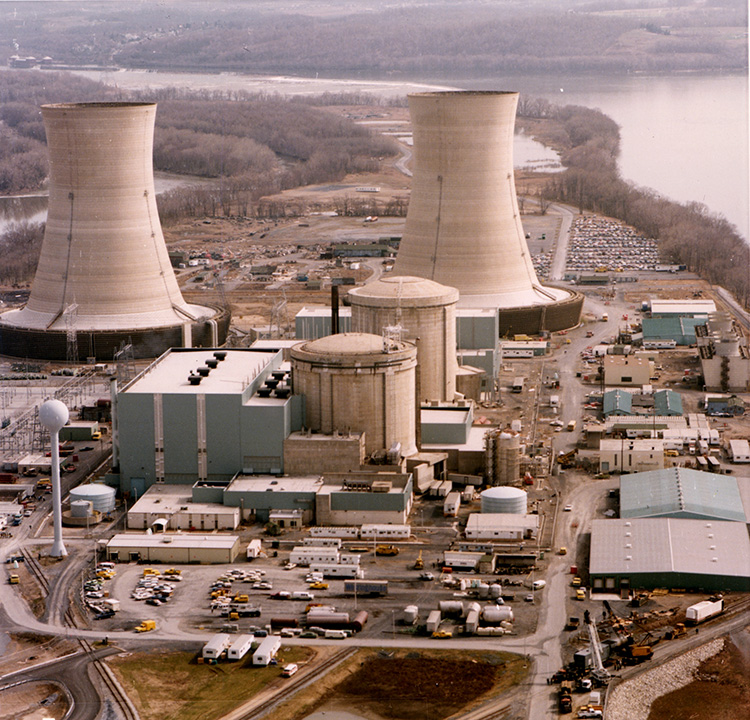
72 
Pennsylvania preppers face many of the same threats as anyone else in America: civil collapse, EMP, natural disasters, etc. However, Pennsylvanians have unique challenges than preppers in other states. What makes sense for a prepper in Michigan may not make sense for a prepper in California. This applies to Pennsylvania as well.
NOTE: Do you live in Pennsylvania? You know your state, so let us know in the comments section how this article can be improved. What did we miss? What did we get right?
Pennsylvania Overview – Prepper’s Perspective
Pennsylvania is one of the cornerstone states in American history and the epicenter of much of the country’s industrial heritage. Today, Pennsylvania’s industrial machinery and equipment industry is the largest employer. It boasts of having well over 12% of the workforce. From 2015 onward, the state was home to 18 Fortune 500 companies, namely H.J. Heinz, Rite Aid, Comcast, Hershey Foods, PNC Financial Services, and the largest AmerisourceBergen (a pharmaceutical distribution and sourcing company). Other smaller industries include producing fabricated metal products, food products, chemicals, and allied products, and publishing and printing.
Food
Approximately 70% of Pennsylvania’s farm income comes from livestock. While milk is one of the most essential commodities for modern man, the food production in Pennsylvania is a bit lopsided. Though the state’s farmers provide 5.5% of the country’s supply as the 5th largest producer of milk, when SHTF, much of that system will encounter disruptive challenges. So while there are food-producing resources in Pennsylvania, Pennsylvanians should not expect to rely on that in a crisis.
Water
Pennsylvania has a lot of water available to its residents. Annual precipitation in the state averages 44 inches, of which the annual snowfall is 38 inches. The state’s aquifers are fully supplied, leading to many of its residents getting much of their water from private wells.
However, given the state’s robust success in manufacturing, many challenges arrive at harvesting this water. Coal mines, old factories, and aging water systems present the state’s residents with challenges to water quality. Challenges that the state wrestles with to this day.
Pennsylvania Natural Disasters
Pennsylvania has been the home to many natural disasters over the years. Many of these are man-made situations, but it is occasionally hit by heavy snow and rain as well. However, even the most deadly of natural disasters do not compare to the scars left on the landscape by man.
1) The Donora Smog (1948) – Long before the conversation surrounding emissions was in full swing, the Donora Smog hung over the unsuspecting residents of Pennsylvania. A zinc and steel plant here would regularly release sulfur and fluoride emissions into the air. This ended after a day of heavy fog caused the gasses to become trapped over the town of Donora for days. When it had lifted, it left twenty people dead from asphyxiation, and 33% of the town was ill from inhaling it.
2) Hurricane Agnes (1972) – Though Pennsylvania’s coastline is very small relative to the rest of the state, hurricanes occasionally wreak havoc in its streets. One of these occasions was the landfall of Hurricane Agnes. When the storm was over fifty people had been killed. Further, $17.5 billion (2017) dollars’ worth of damage had been done.
3) Three Mile Island (1979) – In the worst nuclear accident in American history, Unit 2 of the Three Mile Island nuclear reactor partially melted down. While studies didn’t show that anybody was negatively affected by this event, it most certainly could have been much, much worse. No matter the direct impact of the meltdown, the conversation it produced surrounding nuclear energy remains to this day.
 Three Mile Island nuclear power plant in the United States, which suffered a partial meltdown in one of its reactors in 1979. Image Credit: wikimedia
Three Mile Island nuclear power plant in the United States, which suffered a partial meltdown in one of its reactors in 1979. Image Credit: wikimedia
4) The May 31 Tornado Outbreak (1985) – Forty-three tornadoes comprised this multi-state outbreak, with Ohio being particularly hard hit. Though Pennsylvania did not take the brunt of the damage, the western portion of the state still felt the effects of the multitude of twisters. By the outbreak’s end, 89 people were killed and 1000 were injured, with $600 million in damages being done (throughout all affected states).
5) The Burning of Centralia – A massive coal mine underneath the city of Centralia was accidentally lit on fire by some people burning trash. As a result, the entire city had to be evacuated. To this day, nobody is allowed to live there. While the event took place decades ago, the effects are still being felt to this day.
6) The 1996 Blizzard – After 30-40” of snow fell onto the state, everything was effectively shut down. Government workers attempted to clear the roads by dumping the snow into nearby rivers causing flooding as the snow melted in warmer weather. To date, there has not been a blizzard that has brought about as many challenges and impediments as the one that struck in 1996.
7) Flight 93 (2001) – One of many attacks on the US on September 11, it was here that a Muslim-hijacked plane was retaken by the courage of the passengers, only to crash into the ground below, killing all on board.
8) Hurricane Sandy (2012) – In the most recent of hurricanes to wreak havoc on the eastern seaboard, Hurricane Sandy took most of its wrath out on New Jersey and New York. However, Pennsylvania was also affected. This devastating storm caused $71.5 billion in damages and killed 159 people.
Prepping Strategies
Bugging In
Harden Your Home
In places with large populations, there are more people than law enforcement can handle. Once civil order has broken down and people are hungry, lost, or desperate, anything goes. Therefore, you will want to make your home look as inconspicuous as possible and challenging to get into. Bars on your windows might seem like no big deal in Mexico where they’re a standard part of every home, it might seem odd at your home; but being able to shutter windows and barricade doors can be considered.
It is highly advisable to place natural barriers between your home and the street, such as tall plants that hide their presence. See our lengthy article on landscaping for home security. It goes without saying to hide anything that a looter, robber, or even a simple passerby would deem as valuable when SHTF.
If you are looking for advanced, tactical strategies to harden and defend your home, consider Joe Nobody’s book, Holding Your Ground. It details home defense in an apartment, suburban home, and rural real estate.
Your Stores are Key
When SHTF and you decide to bug in, you can forget about heading out for supplies; that compromises the goal of bugging in. With Pennsylvania’s population density and lack of food production, the primary source of food will be your own cupboard.
Stock up on bulk survival food while you can. Consider items that are flexible in cooking methods, cheap, and store easily. Stored rice is a prime example of a type of food that can be tucked away for when the next societal disruption hits.
Bugging Out
One of the most important pieces of equipment for any prepper planning to bug out is to have decent maps of their state. Having an identified bug out location is crucial. All preppers in any state should begin their bug out plans with a paper map of their state. Nothing is better for all-purpose use than the DeLorme Atlas and Gazetteer.
People are the Problem
If you are in Pennsylvania and decide it’s time to bug out, be prepared to run into masses of people. The likelihood is you will be on the road with a crowd as the populations of Pittsburg, Philadelphia, and their outlying regions attempt to do the same. When you have masses of people facing hard times, no crime is off the table. A skim of accounts of people in refugee camps will give you an idea how bad things can get.
Be Physically Fit
You may not realize it, but Pennsylvania is no joke regarding physical challenges. The only true wilderness it has is the Alleghany Mountains in the state’s center. If you go east or west, you will be sandwiched by busy population centers that are butted up against the water.
Therefore, for those staying in Pennsylvania and bugging out on foot, you could find yourself climbing thickly vegetated and steep mountains. Though they aren’t as big as the mountains in the west, they are just as challenging. The time to ready yourself for climbing the mountains is now. Get a ruck and begin to add miles underneath it. That way, when SHTF, you are ready to take to the hills.
Further Reading for Pennsylvania Preppers
Pennsylvania Bushcraft and Survival – Facebook group that is focused on all things prepping, bushcraft, and survival.
Central Pennsylvania Preppers Meetup – Networking group to exchange ideas, goods, and engage in like-minded fellowship.
Ready PA – Blog run by PEMA that has tips and tricks to get ready for the next disaster.
PA Emergency Management Agency – Official PA Government website on disaster response and preparedness.
True North Wilderness Survival School – Located in Pittsburg, True North teaches students wilderness skills such as medicine, survival, and navigation.
Coal Cracker Bushcraft – Prepping school located in Ringtown that teaches cooking, wilderness skills, and more.

